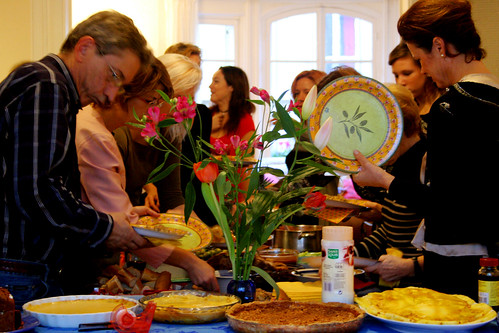This spring, I was asked to teach a Grade Four class how to show respect for the environment. To get them thinking from a new perspective, I brought up a story from the First Nations people about their tradition called “K’aaw K’iihl”. When the Skidegate community in Haida Gwaii attend a feast, they all bring their own containers to bring food back home. The host even cooks extra to ensure their guests have enough to take away at the end of the feast.
I would usually not expect to bring food back from a party, and would definitely not bring a container with intent to collect the leftovers. At the same time, thinking of the leftover food going to waste, disposable plates and cups filling the garbage can or landfills and polluting the environment, or thinking of the energy used to get rid of them–I can sure start to understand the benefits of K’aaw K’iihl.

I asked the students to suggest how they can learn from K’aaw K’iihl. Don’t we actually see similar practices in our daily lives? I bring my lunch in a reusable container with my own cutlery, carry around a water bottle, and keep a mug at work. It may sound like a small gesture, but a meal a day multiplies to so many over the course of, say, a year. What if there is a party of a hundred people? There goes at least a hundred plates and a hundred cups in a single event.
A surprising statistic said the University of BC throws away forty-one bags of paper towels to the landfill every day. In the same way that K’aaw K’iihl does, I’m hoping I will save garbage coming from the use of disposable plates and cups.
What struck me as special in this Skidegate tradition is that it is not only future food that the Skidegate people take back home: they bring back warm memories of the great feast and time they have shared with others.

I remember my very first Thanksgiving dinner after I moved to North America. I was invited as a guest, and the host mother packaged me some food to take home to my university residence. Opening up the food next day just made me smile recalling her warm gesture and the delicious dinner the night before.
The First Nations traditions—that seemed to be a distantly different lifestyle from mine—actually encouraged me to explore more of their traditions and reflect on my own effect on the environment.
(This article was published in January 2013 on At this time the news magazine and Community of Accounting and Business Professionals blog)

Relevant to this article, my friend brought up an interesting point – is it more “green” to use compostable paper plates sometimes rather than use dishes and wash oil down the drain and pollute our waters? Also in the washroom, are hand dryers using energy as a trade-off for not throwing away paper? I should revisit these questions.